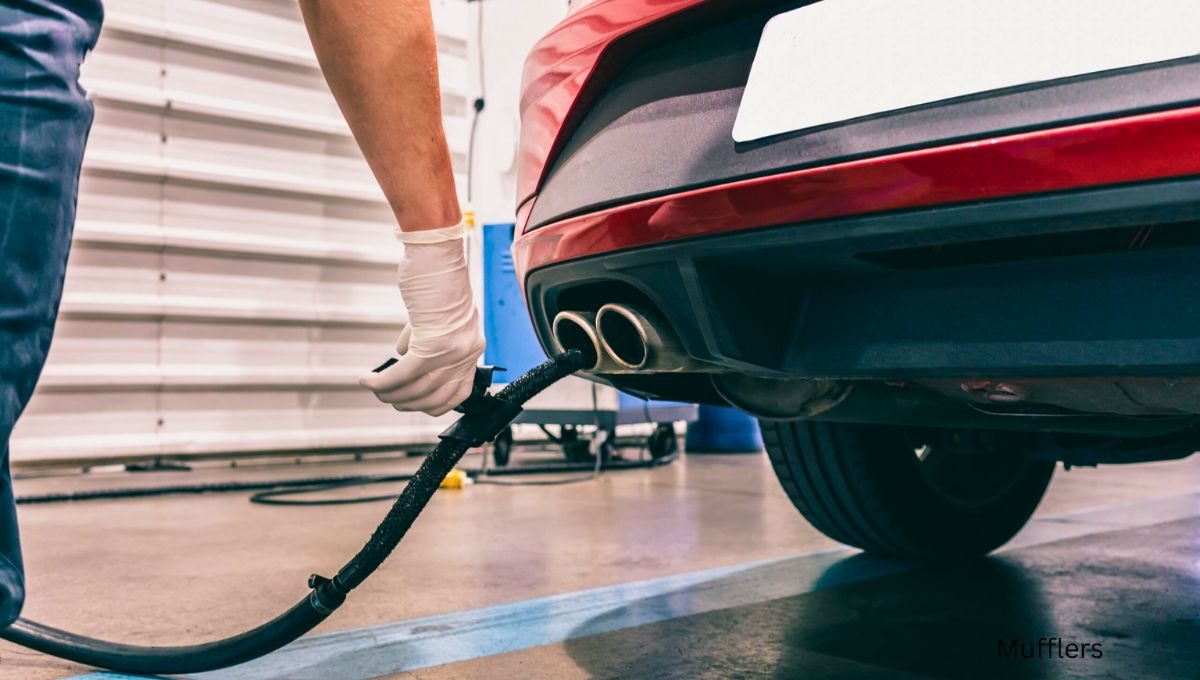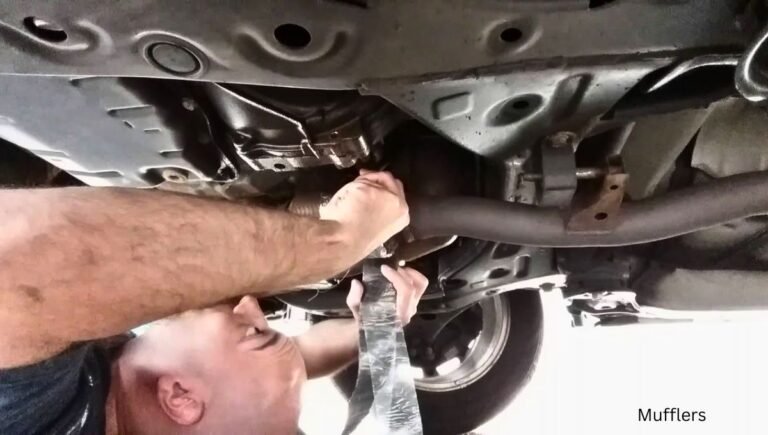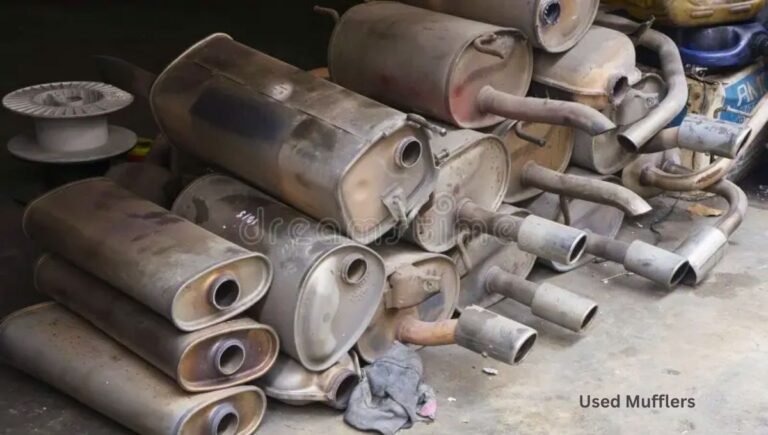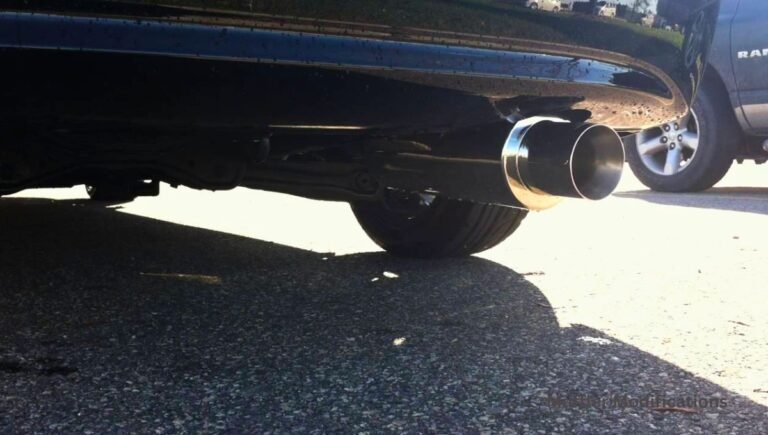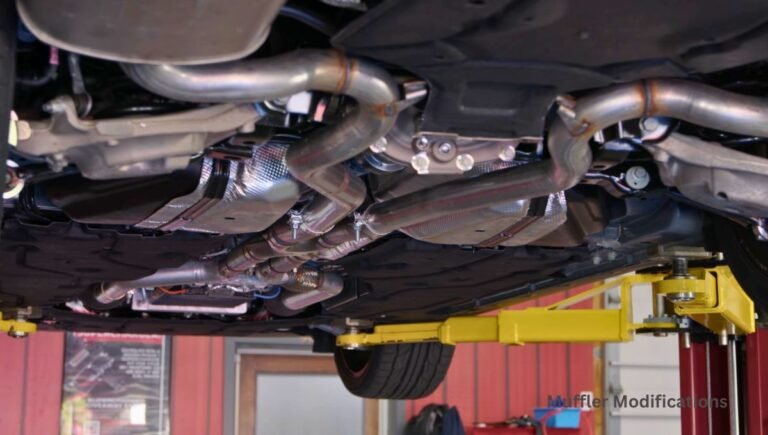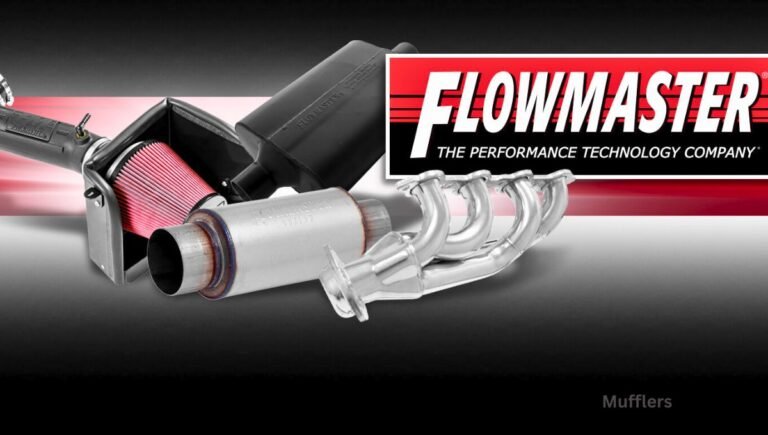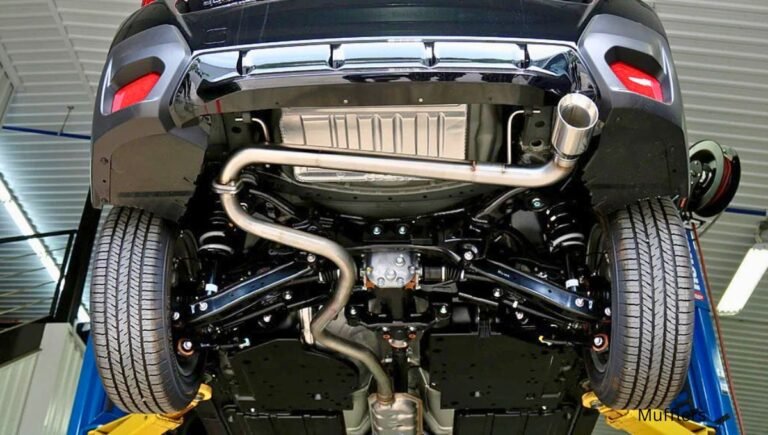Do You Need a Muffler to Pass Inspection? Key Insights
Yes, a muffler is typically required to pass inspection due to noise and emissions regulations. Without a muffler, your vehicle may not meet the necessary standards, resulting in inspection failure.
When a vehicle undergoes inspection, various components, including the muffler, are checked to ensure compliance with safety and environmental regulations. A functioning muffler plays a crucial role in reducing noise and harmful emissions from the vehicle. Therefore, having a properly functioning muffler is essential to pass inspection successfully.
If your muffler is damaged or missing, it is advisable to repair or replace it before undergoing inspection to avoid potential failure and related issues.
Introduction To Vehicle Inspection
Vehicle inspections are a crucial aspect of ensuring the safety and compliance of cars on the road. In many regions, vehicles must undergo regular inspections to ensure they meet specific standards for emissions, noise levels, and overall roadworthiness. One of the key components that is scrutinized during these inspections is the muffler.
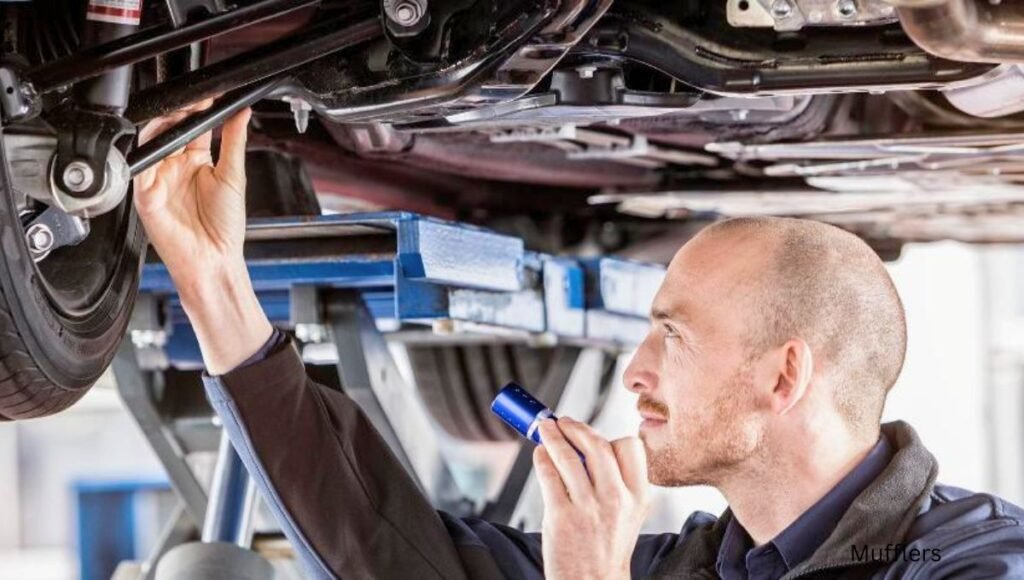
The Role Of The Muffler
The muffler plays a critical role in reducing the noise produced by the vehicle’s exhaust system. It is designed to dampen the loud sounds created by the engine, thereby contributing to a quieter driving experience for both the occupants of the vehicle and the surrounding environment. Additionally, the muffler helps to direct exhaust gases away from the vehicle and prevents harmful fumes from entering the passenger cabin.
Emission Standards And Noise Regulations
When it comes to vehicle inspections, emission standards and noise regulations are of utmost importance. The muffler directly impacts the vehicle’s compliance with these standards. It helps to reduce harmful emissions and ensures that the vehicle operates within the acceptable noise limits set by regulatory authorities. In many jurisdictions, vehicles that fail to meet these standards may not pass inspection, highlighting the significance of a properly functioning muffler.
Muffler Functionality And Inspection Criteria
To pass inspection, mufflers play a crucial role in reducing noise levels and emissions from the vehicle. During inspection, mufflers are checked for leaks, damage, and proper functioning to ensure compliance with regulations. Proper maintenance and timely repairs can help ensure a smooth inspection process.
Muffler Functionality
A muffler is an essential component of your vehicle’s exhaust system. Its primary function is to reduce the noise produced by the engine and exhaust system. It also helps to control the emissions released by the engine. The muffler contains chambers and baffles that help to absorb and redirect the sound waves produced by the engine.
Inspection Criteria
During a vehicle inspection, the muffler is inspected for functionality and integrity. The inspector checks for any signs of damage or excessive rust that may affect the muffler’s ability to function correctly. Additionally, the inspector checks for leaks in the exhaust system and ensures that the muffler is securely attached to the vehicle.
Sound Dampening Essentials
The muffler plays a crucial role in reducing the noise produced by the engine and exhaust system. It is important to ensure that the muffler is functioning correctly to comply with noise pollution regulations. A defective or worn-out muffler can produce excessive noise, which can lead to a failed inspection.
Exhaust System Integrity
The exhaust system must be free from leaks and damage for the vehicle to pass inspection. Any leaks in the exhaust system can lead to the release of harmful emissions, which can affect the environment and your health. The exhaust system is inspected for cracks, holes, and other signs of damage that may affect its functionality.
In conclusion, a muffler is an essential component of your vehicle’s exhaust system, and it must be functioning correctly to comply with inspection regulations. Ensure that your muffler and exhaust system are well-maintained to avoid any issues during inspection.
State-specific Inspection Requirements
When it comes to vehicle inspections, state requirements can vary significantly. As a result, one question that often arises is whether or not you need a muffler to pass inspection. The answer is not always straightforward, as it depends on the specific regulations in your state.
Variations In Muffler Regulations
While many states require mufflers to be installed on vehicles, there are some variations in the specific regulations. For example, some states may have decibel limits in place to ensure that the vehicle is not too loud. Others may have restrictions on the type of muffler that can be used, such as requiring a specific brand or model. Still, others may require that the muffler is in good working order and not excessively corroded or damaged.
Case Studies: States With Strict Standards
Some states have particularly strict standards when it comes to mufflers and vehicle inspections. For example:
| State | Muffler Requirements |
|---|---|
| California | Must meet specific noise standards and be in good working order |
| New York | Must meet specific noise standards and cannot be modified to increase noise |
| Massachusetts | Must meet specific noise standards and be in good working order |
It is important to note that these regulations can change over time, and it is always best to check with your local DMV or other relevant authority to ensure that you are in compliance with all applicable regulations.
Ultimately, whether or not you need a muffler to pass inspection will depend on the specific regulations in your state. While many states do require mufflers, there may be variations in the specific requirements. If you are unsure about the regulations in your state, be sure to do your research and consult with local authorities to ensure that your vehicle is in compliance.
Consequences Of Muffler Issues
Facing muffler issues can lead to failing inspection, as a functional muffler is crucial. It helps reduce noise and emissions, ensuring your vehicle meets regulatory standards for passing inspection. Addressing muffler problems promptly can save you from the hassle of failing inspection due to exhaust system issues.

Emissions Failures
Muffler issues can have serious consequences when it comes to passing inspection. One of the main concerns is emissions failures. A malfunctioning or damaged muffler can affect the emissions system of your vehicle, leading to increased pollution and the release of harmful gases into the environment. During an inspection, your vehicle will be tested to ensure it meets the required emissions standards. If your muffler is not functioning properly, it can result in a failed emissions test, which will prevent your vehicle from passing inspection.
Noise Violations And Penalties
In addition to emissions failures, muffler issues can also lead to noise violations and penalties. A muffler is designed to reduce the noise produced by the exhaust system of your vehicle. If your muffler is damaged or missing, it can result in excessive noise levels that exceed the legal limits set by your state or local authorities.
This can not only be a nuisance to you and those around you, but it can also result in fines and penalties if you are caught driving a vehicle with a noisy exhaust system. It’s important to ensure your muffler is in good working condition to avoid any noise violations and the associated penalties.
To summarize, muffler issues can have significant consequences when it comes to passing inspection. Not only can they result in emissions failures, contributing to increased pollution, but they can also lead to noise violations and penalties if the noise produced by your exhaust system exceeds the legal limits. It’s crucial to address any muffler issues promptly to ensure your vehicle meets the required standards and passes inspection.
Preparing For Inspection: Muffler Checklist
When it comes to passing a vehicle inspection, ensuring that your muffler is in good condition is crucial. A malfunctioning muffler can not only lead to a failed inspection but can also affect the overall performance and safety of your vehicle. To help you prepare for your upcoming inspection, we have put together a comprehensive muffler checklist that covers both visual and auditory inspections.
Visual Inspection Tips
Before taking your vehicle for inspection, it is important to visually inspect your muffler for any visible signs of damage or deterioration. Here are some visual inspection tips to keep in mind:
- Check for rust or corrosion on the muffler body and pipes.
- Look for any holes, cracks, or loose connections.
- Ensure that the muffler is securely attached to the vehicle’s exhaust system.
- Inspect the exhaust pipe for any signs of damage or leaks.
Performing a thorough visual inspection will give you an idea of the overall condition of your muffler and help identify any potential issues that may lead to a failed inspection.
Auditory Signs Of Muffler Problems
In addition to the visual inspection, it is essential to pay attention to any auditory signs that may indicate muffler problems. Here are some common auditory signs to listen for:
- Unusual loud noises or rattling coming from the muffler.
- Excessive engine noise or a change in the exhaust sound.
- Hissing or hissing sounds indicating a possible exhaust leak.
If you notice any of these auditory signs, it is recommended to have your muffler inspected by a professional before taking your vehicle for an official inspection. Addressing these issues beforehand can increase your chances of passing the inspection and ensure the proper functioning of your vehicle.
In conclusion, a well-maintained muffler is not only necessary for passing a vehicle inspection but also for the overall performance and safety of your vehicle. By following these visual inspection tips and paying attention to any auditory signs of muffler problems, you can be better prepared for your upcoming inspection and avoid potential issues.
Common Muffler Problems And Solutions
Rust And Corrosion
Rust and corrosion are common issues that can affect the performance and durability of a muffler. Regular inspection is essential to detect any signs of rust or corrosion early on. If any rust is found, it’s crucial to address it promptly to prevent further deterioration. Applying a rust-resistant coating can help prevent future corrosion and extend the lifespan of the muffler.
Leaks And Holes: Repair Or Replace?
Leaking and holes in the muffler can lead to decreased engine performance and increased noise levels. In the case of minor leaks, they can often be repaired using specialized muffler patch kits. However, for more extensive damage and larger holes, replacement of the muffler may be necessary to ensure proper functionality.
Aftermarket Mufflers And Inspection
To pass an inspection, it’s essential to have a properly functioning muffler. Aftermarket mufflers can provide better performance and sound, but they must meet specific noise level regulations to pass an inspection. It’s crucial to ensure that any modifications comply with local laws and regulations.
Performance Mufflers Vs. Oem
Legal Considerations For Modifications
Aftermarket mufflers can impact a vehicle’s performance and compliance with inspection requirements. Upgrading to a performance muffler can enhance engine efficiency and sound quality. However, it’s essential to consider legal implications and compliance with regulations.
Performance mufflers may offer improved airflow and horsepower compared to OEM mufflers. They can enhance the vehicle’s overall performance and driving experience.
Legal considerations for modifications include ensuring that aftermarket mufflers comply with noise level regulations. Modifications should not exceed the decibel limits set by local laws.
When installing aftermarket mufflers, it’s crucial to follow manufacturer guidelines and seek professional advice to ensure compliance with inspection standards.
In summary:
– Performance mufflers offer enhanced performance benefits.
– Legal compliance is essential when modifying exhaust systems.
– Professional guidance can help ensure aftermarket mufflers meet inspection requirements.
Final Thoughts
To pass inspection, having a muffler is necessary. It helps reduce noise pollution and ensures that your vehicle meets the required standards. Without a muffler, your chances of passing inspection may be slim.
The Importance Of Regular Maintenance
Regular maintenance ensures your vehicle runs smoothly and meets safety standards.
Maintenance helps identify issues early and prevents costly repairs.
By keeping up with maintenance, you increase your vehicle’s longevity.
Future Trends In Vehicle Inspections
Future inspections may involve more focus on emissions and technology.
Automation could streamline the inspection process for efficiency.
Vehicle safety standards are likely to evolve with advancing technology.
Final Thoughts
Ensuring your vehicle meets inspection requirements is crucial.
Regular maintenance and staying informed about trends are key.
By maintaining your vehicle properly, you can pass inspections with ease.
Conclusion
Ensuring your vehicle has a functioning muffler is crucial for passing inspection. A well-maintained muffler not only reduces noise pollution but also plays a vital role in controlling emissions. By addressing any muffler issues before inspection, you can avoid potential fines and ensure your vehicle meets the necessary requirements.

